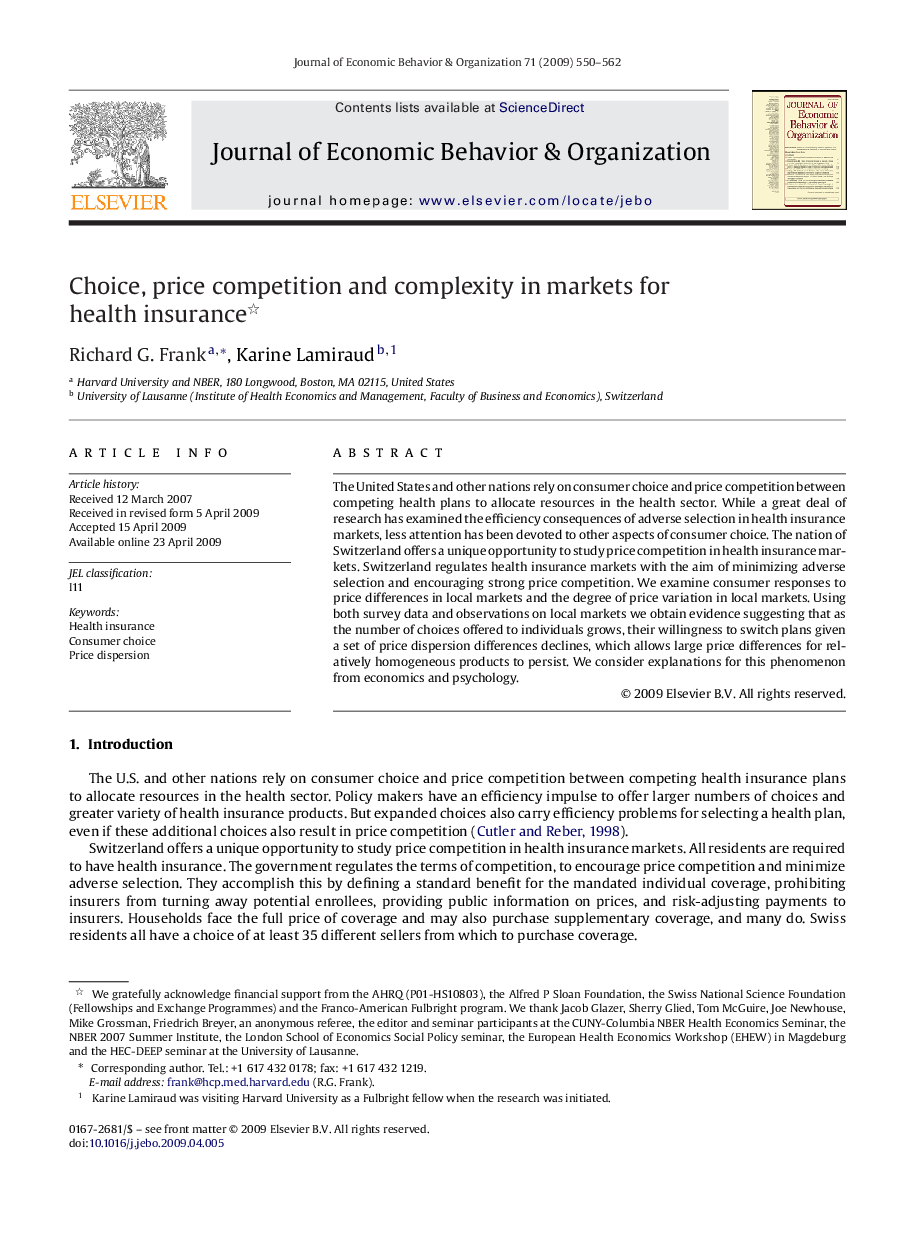| Article ID | Journal | Published Year | Pages | File Type |
|---|---|---|---|---|
| 884282 | Journal of Economic Behavior & Organization | 2009 | 13 Pages |
The United States and other nations rely on consumer choice and price competition between competing health plans to allocate resources in the health sector. While a great deal of research has examined the efficiency consequences of adverse selection in health insurance markets, less attention has been devoted to other aspects of consumer choice. The nation of Switzerland offers a unique opportunity to study price competition in health insurance markets. Switzerland regulates health insurance markets with the aim of minimizing adverse selection and encouraging strong price competition. We examine consumer responses to price differences in local markets and the degree of price variation in local markets. Using both survey data and observations on local markets we obtain evidence suggesting that as the number of choices offered to individuals grows, their willingness to switch plans given a set of price dispersion differences declines, which allows large price differences for relatively homogeneous products to persist. We consider explanations for this phenomenon from economics and psychology.
